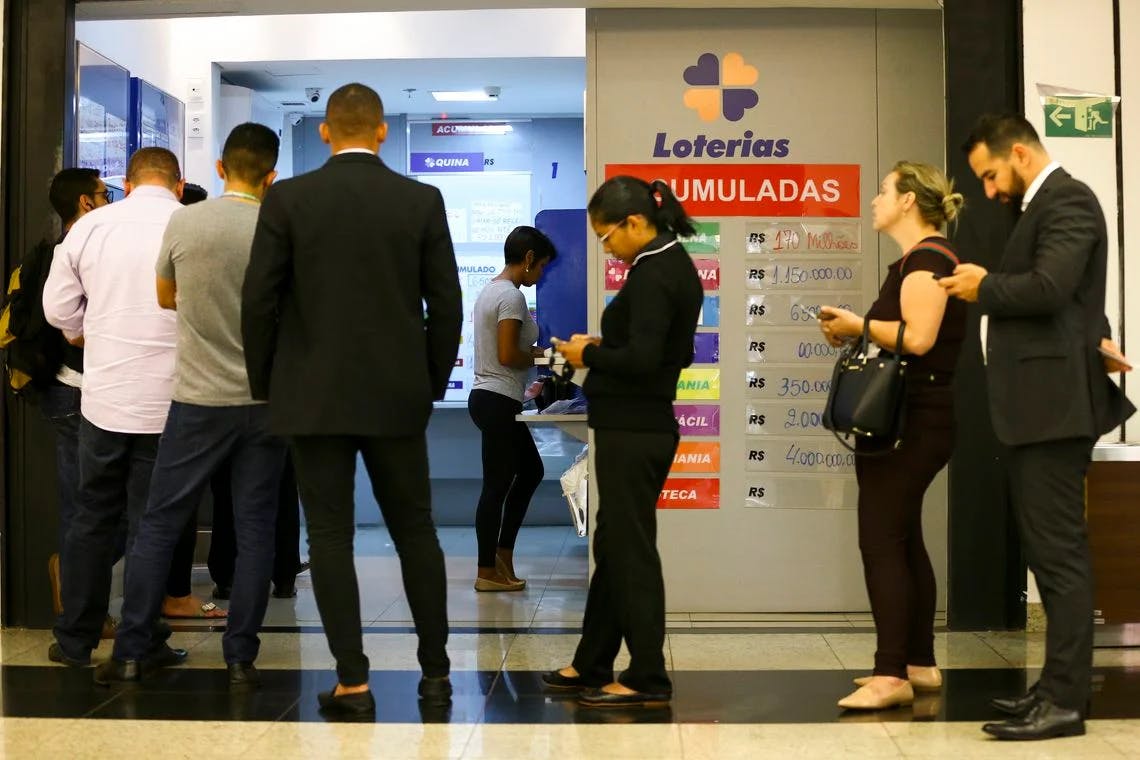The Pandemic and the Digital Revolution in Lotteries
How the Covid-19 pandemic accelerated the digital transformation in lotteries, creating new opportunities for players and modernizing the sector.
The Lottery House
tags:
tecnology
curiosity

The Impact of the Pandemic on the Lottery Market
The Covid-19 pandemic brought profound changes to various sectors of the economy, and lotteries were no exception. With restrictions imposed on physical commerce and social distancing measures, the sector was forced to adopt technological solutions to ensure the continuity of services. This digital transformation not only guaranteed the survival of lotteries during the critical period of the pandemic but also opened the door to a new era of modernization and accessibility.
The Digital Revolution: How Technology Transformed Lotteries

The onset of the pandemic in 2020 triggered a wave of uncertainty in the global market. Lotteries, traditionally associated with in-person ticket sales at lottery shops or specialized kiosks, faced a significant challenge with the need for social distancing. With physical locations closed or operating on reduced hours, it was urgent to find alternatives to maintain player engagement and ticket sales. It was in this context that the digital revolution in lotteries gained momentum.
The Rise of Online Betting
Before the pandemic, many lotteries around the world already offered digital platforms, but the number of users was relatively low. In Brazil, for example, Caixa Econômica Federal allowed online betting, but adoption was limited. With the pandemic, this reality changed dramatically.
Social isolation drove millions of players to migrate to digital platforms. The convenience of betting from home with just a few clicks became an attractive option. In addition, apps and websites began offering additional features such as automatic number generators, statistics from previous draws, and real-time notifications about results. This modernization increased engagement and attracted a new audience, especially younger players who are already familiar with the digital world.
Digital Lotteries and the Globalization of Betting
Another significant impact was the ability to access international lotteries. With the strengthening of digital platforms, players from different countries were able to participate in global draws such as the United States' Powerball or Europe's EuroMillions. This globalization expanded players' options and increased jackpot prizes, making the lottery market more competitive and appealing.
Digital Payments and Transaction Security
The digitization of lotteries also brought innovations in payment methods. While physical betting required cash or debit cards, digital platforms integrated a wide range of options, including digital wallets, Pix, cryptocurrencies, and QR code payments. This not only made betting easier but also ensured greater security for users, who can track their transactions in real-time and store their tickets virtually.
Challenges of Digital Transformation in Lotteries

Despite the evident benefits, the digitalization of lotteries also posed significant challenges.
Digital Inclusion
Although online platforms proved to be an efficient solution for many, part of the population struggles with access to the internet or technological devices. For these players, especially the elderly or residents of remote areas, the transition to digital was a challenge.
Lotteries had to find ways to balance modernization with inclusion. Some companies implemented strategies to facilitate access, such as simplified interfaces, online tutorials, and customer support via phone to assist new users.
Fraud and Cybersecurity
Another challenge was the need to ensure the security of digital platforms. With the increase in online transactions, the risk of fraud and scams also grew. Lottery companies invested in cutting-edge technology to protect user data, implement two-factor authentication systems, and ensure that digital tickets were stored securely.
Cultural Resistance
Many people still prefer physical interaction and the tradition of visiting a lottery shop to place their bets. This cultural resistance was an initial barrier, but the pandemic demonstrated that digital options could be equally reliable and even more convenient.
The Benefits of Digitalization for the Lottery Sector

The digital transformation brought lasting benefits to the lottery market, extending far beyond the pandemic period.
Wider Reach and Engagement
With online betting, lotteries were able to reach a much broader audience. Players who were previously restricted by location or the operating hours of lottery shops can now participate from anywhere and at any time.
Sustainability and Cost Reduction
Digitalization also contributed to the sustainability of the sector. The reduction in the printing of physical tickets and marketing materials helped decrease the environmental impact. Furthermore, the operational cost of online platforms is significantly lower than that of physical operations, allowing companies to reinvest profits into larger prizes or technological improvements.
Data and Personalization
Digital platforms allow lotteries to collect data on player behavior. With this information, companies can personalize the user experience, offering targeted promotions, recommended games, and customized notifications. This increases engagement and creates a more satisfying experience for players.
The Future of Lotteries: Hybrid and Innovative

The digital mportante initiated during the pandemic was not just a temporary solution but a milestone for the future of lotteries. With the integration of emerging mportantes such as artificial intelligence, blockchain, and augmented reality, lotteries are preparing to offer even more innovative experiences.
Blockchain and Transparency
Blockchain technology can revolutionize how draws are conducted, ensuring total transparency and eliminating doubts about the legitimacy of the results. Additionally, this technology allows for the creation of digital tickets that are impossible to counterfeit, increasing players’ confidence.
Augmented Reality and Gamification
With the popularization of augmented reality, lotteries can transform the player experience, making it more interactive and fun. Imagine scanning a ticket with your smartphone and watching the draw in na immersive virtual environment. These innovations make the game more engaging and attract a younger audience.
Hybrid Betting: Physical and Digital
Although digital mporta have gained significant ground, the hybrid model will still be mportante in the future. Many people value the in-person experience, and lotteries can integrate the two formats, offering physical tickets that can also be managed digitally through apps.
The Pandemic as a Catalyst for Change

The Covid-19 pandemic was a catalyst for the digital transformation of lotteries, driving innovations that would likely have taken years to implement under normal conditions. This revolution not only ensured the continuity of the sector during a critical period but also prepared it for a more accessible, sustainable, and technological future.
Now, with strengthened digital platforms and the emergence of new technologies, lotteries are more connected than ever with their players, offering convenience, security, and innovative experiences. The future of lotteries is promising, and digitalization will undoubtedly be the protagonist of this story.